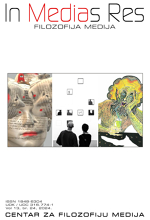The Arab Islamic Civilisation as a Global Force for Good: A Reworked Science-Focused Historical Narrative
The Arab Islamic Civilisation as a Global Force for Good: A Reworked Science-Focused Historical Narrative
Author(s): Moneef R. Zou’biSubject(s): Cultural history, History of ideas, Social history, Islam studies, 6th to 12th Centuries, 13th to 14th Centuries
Published by: Centar za filozofiju medija i mediološka istraživanja
Keywords: Islamic science; Islamic tradition; civilization; culture; Bayt al-Hikma; scientific revolution; Europe;
Summary/Abstract: From the eighth century, Muslims developed not only their knowledge in the field of theology, but also astronomy, mathematics, chemistry, medicine and other sciences. It is in the nature of Islam to encourage understanding and knowledge, research and study of nature. The text wants to show that the foundations of the Islamic scientific tradition existed even before the introduction of the Greek tradition, that is, that the golden age of Islamic science began with Abdel al-Malik, a century and a half before the creation of Bayt al-Hikma in Baghdad in the 9th century. For almost an entire millennium, the scientists of the Islamic civilization not only studied and analyzed the Greek (and other) sciences, but also added to them many completely new concepts that were unknown to their predecessors. The Crusades and the Mongol invasion influenced the circumstances in which Islamic science developed. The slow introduction of printing technology contributed to the slowdown of scientific development, as did the cessation of the use of the Arabic language as a scientific lingua francae. It is important to point out that Europe in the 12th century paid great attention to Islamic works on astronomy, arithmetic, trigonometry, optics, geometry, astrology and medicine (Mushtaq 1990). The proposed narrative therefore tells us that the science that began with the Greeks came to the Arabs and Muslims where it was accepted, assimilated and rearranged. It was then transferred to Europe over the centuries, where it ultimately contributed significantly to the industrial revolution.
Journal: In Medias Res
- Issue Year: 13/2024
- Issue No: 24
- Page Range: 4095-4101
- Page Count: 7
- Language: English

